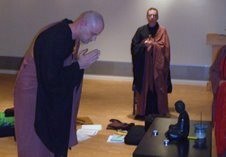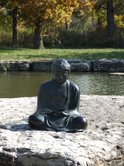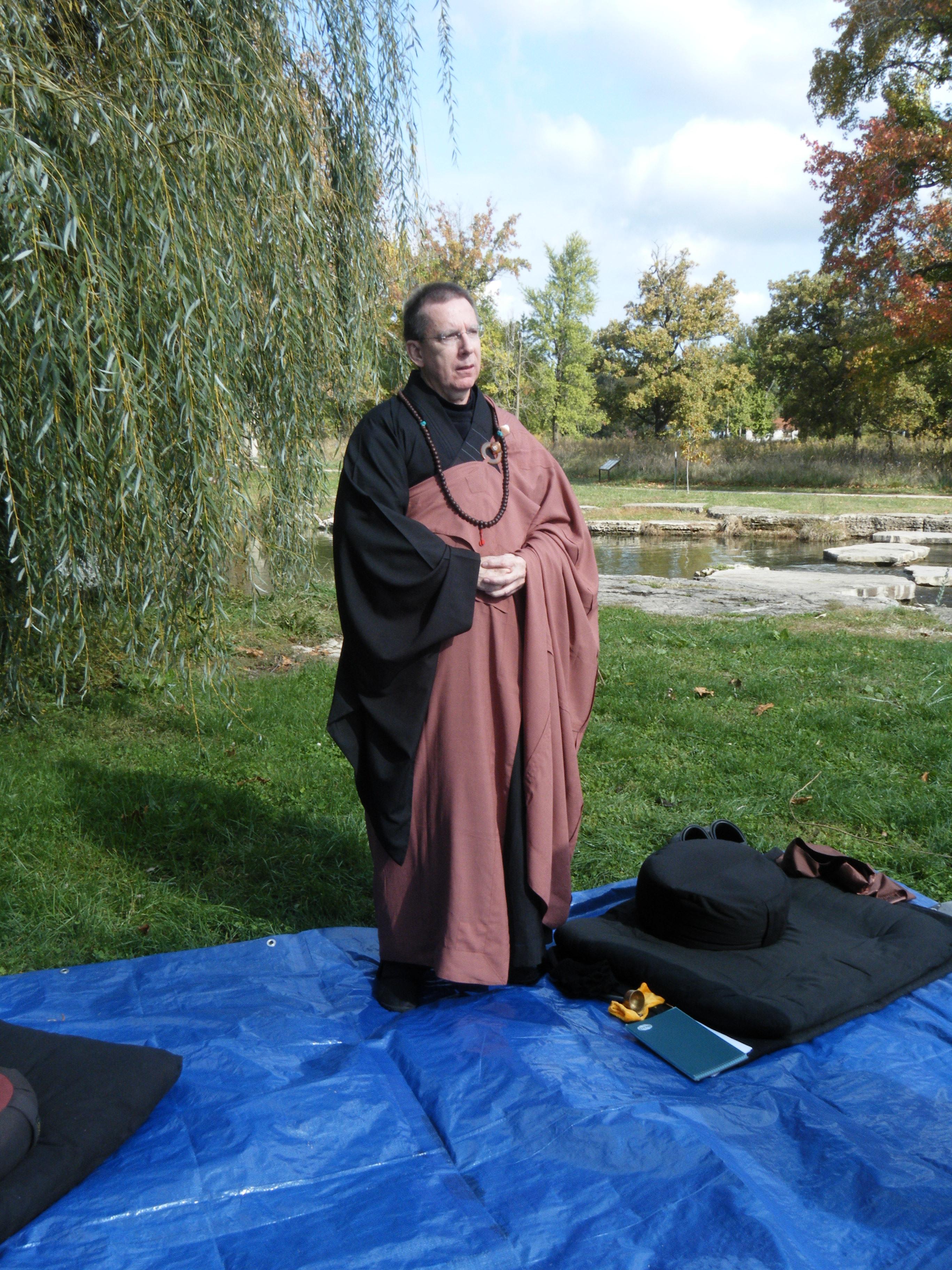By: David Xi-Ken Astor, Sensei
The past few weeks developments relative to what is happening in Ferguson Missouri has yet again exposed this ongoing cultural issue of how we confront our personal identity relative to how we engage the reality of human differences. As a consequence we are given an opportunity to consider race/gender/religious differences and the role of prejudicial behavior that can arise from distorted dispositions. This is not an easy lesson to present, either from a Buddhist perspective or from a pluralistic one. Pragmatic philosophy as a model when coupled with Buddhist thought can be a guide for our ethic and moral outlook relative to this social reality. This tragedy is, yet again, an example of an opportunity to apply situational ethics to our practice. So, I would like to share with you some of my thoughts that might give you an idea on how, as a Buddhist, we might approach a discussion on these events. Both Jesus and Siddhartha spoke in a very clear voice that can guide us through these very real, and very divisive, situations with lessons on our obligation as social-selves to act with astute and applied compassion. A compassion not just extended to one side. That would just ignore the causal-chain culminating in an act of violence. Acts of violence often cloud the underling emotions of suffering. We are challenged to find the interconnective lessons that bring all of us as subjects to these events. From my perspective, no one has the luxury of being a bystander.
Buddhists are naturalists, and naturalists are first of all champions of causal accounts of the Universe. As such, we look for naturalistic accounts to help us understand “why” something expresses itself the way it does. This allows us to plan, take and succeed through deferential action aimed at undoing what is unhealthy, destructive, and promoting discontent while promoting that which is instead healthy, harmonious and satisfying in the psycho-emotional sense. The social/cultural interpretation of events are often bound by it’s racism/prejudicial imposing dispositions and in need of help and intervention as much or more than the individuals involved, as it is easier to tell a new story to oneself about a wrongdoing done to us than it is for a society to change how to express cultural expectations when viewed across differing human view of reality. It is easier to think differently than to act differently. It takes a deep understanding and appreciation for causality to see this, because we are, in a liberal democratic society, “wired” today to feel strong disgust first and foremost at the individual of negative attitudes and actions before we feel the urge to make it better. The feeling of disgust is protective of cultural values because if we don’t feel this way, who will preserve the values? However, it is not sufficient, and is far from sufficient, for anyone seeking to make the world qualitatively better just to feel disgust. If one person is a “political or attitude racist” we all still have work to do to promote change. It takes practice, but Buddhists as well as Christians (and especially leaders) living in their communities aim to develop a sense to stop the immediate repercussions of negative attitudes and actions, such as scolding someone’s extreme bias remarks or standing in the way of an angry boyfriend ready to hit his girlfriend (this is the disgust part), followed up immediately by the ethics of the Bodhisattva ideals: asking ourselves how do we reform these circumstance for the better?
Research is going on in bridging disciplines of social science and psychology to investigate how much of our attitudes are learned and how much are inborn (genetic). A recent study in the Scientific American Mind explains that the majority of humans beings initially have a subconscious stereotype for differences other than their own, remnant of the 10,000 year ago tribal life where it did enhance survival. Civilization and liberal democratic ideals are a cultural, learned phenomenon of very recent origin, the result of telling a new story about how we should live. 10,000 years ago which is the most recent major phase of human evolution according to the best of current science, members outside of one’s own tribe were likely to kill or capture members of another tribe as the concepts of selflessness had not been thought up yet. This does NOT mean we were not then interconnected; we were, but we were not aware of the kind of ethical notion of selflessness and altruism we have developed today in a civilized society. So, the inborn tendency to fear others that are different is a problem that is far deeper than one person’s ignorance or overactive ego, and our job is to play the all important role of promoter of useful and positive ideas that will ultimately become the new inborn tendency. Here is the interesting part: as soon as a person of a particular group learns to pay attention to differences of individual members of other groups than his own, he becomes less and less fearful and therefore more tolerant of others. We have all heard the saying at one time or another perhaps that “individuals of a particular ethnic group all look alike”. There is a genetic basis for this, and all genetics are causally arisen from some previous attitude or behavior and did function to enhance the ability to live on earth successfully.
Though today we have newer and healthier ideas about ethics that serve the welfare of more people than ever, we cannot forget how they got here and that they are not the result of one person’s random hate or ignorance, or the belief system they have chosen to live by. We can and must feel disgust by events like what is happening in St. Louis, but then it must transfer immediately to the motivation of how do we reform this circumstance for the better? Not just politically. There is nothing positive to achieve by intentional acts of violence or organized conflict (war) in the long run. Everything is grounded in causality and the chain of effects, and it is precisely this fact that allows us to change human nature for the better. It is a challenge we all must bring into our daily worldview as we strive to live by our professed Buddhist precepts, while at the same time not getting caught up in only feelings of disgust.


















































































